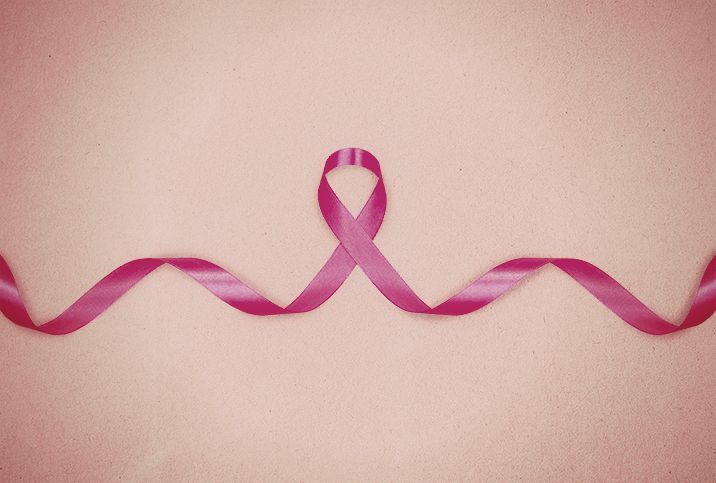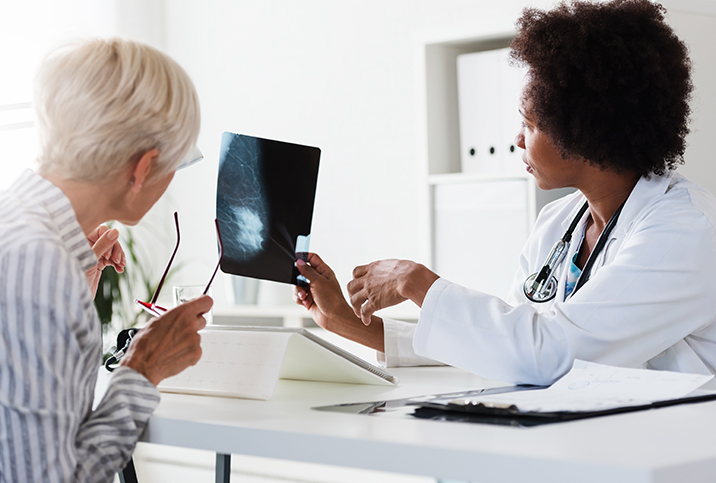Jenna Fischer Officially Cancer-Free After Treatment for Breast Cancer

Key Points
- After skin cancer, breast cancer is the most common type of cancer affecting women in the United States.
- Jenna Fischer, who played Pam on the TV comedy, "The Office," was diagnosed with triple positive breast cancer, an "aggressive" but highly treatable form of the disease.
- She's now cancer-free after months of treatment, including a lumpectomy, chemotherapy and radiation.
Jenna Fischer, best known for her role as Pam Beesly in NBC's popular comedy "The Office," is the latest celebrity to share her story of breast cancer survival, following the likes of Katie Couric, Miranda McKeon and others.
Here's what to know about triple-positive breast cancer and how Fischer beat it.
When did Jenna Fischer announce she had breast cancer?
In an Instagram post commemorating Breast Cancer Awareness Month, the actor announced she was diagnosed with Stage 1 triple-positive breast cancer last December.
She is now cancer-free after undergoing breast cancer treatment.
"As anyone who has had a cancer diagnosis knows, your life changes immediately. It becomes all about doctor appointments, test results, treatments and recovering from treatments," she wrote.
"Suddenly, everything in your life is geared around one thing: fighting cancer."
What is triple-positive breast cancer?
If you have triple-positive breast cancer, the tumor has receptors for the hormones estrogen and progesterone, as well as high levels of the HER2 protein, according to BreastCancer.org. Hormones fuel the tumor's growth by binding with the receptors, while HER2 proteins cause the cells to divide and proliferate.
Roughly 70 to 80 percent of newly diagnosed breast cancers are hormone receptor-positive cancers, according to a 2022 report.
About 10 percent are triple-positive, according to BreastCancer.org.
After skin cancer, breast cancer is the most common type of cancer affecting women in the United States, as reported by the American Cancer Society (ACS). It accounts for about 30 percent of new cancer diagnoses in women yearly.
Hormone-receptive breast cancers generally respond to drug treatments, and survival rates are relatively high.
More than 90 percent of women and people assigned female at birth (AFAB) diagnosed with estrogen receptor-positive breast cancers were alive five years after their diagnosis, according to data from the National Cancer Institute (NCI).
As with other types of breast cancer, early detection significantly increases the likelihood of successful treatment and survival.
What treatment did Jenna Fischer undergo to beat breast cancer?
Fischer shared a post in October 2023 of herself preparing for a routine mammogram with the caption "Gotta take care of these ticking time bags"—a reference to an episode where Steve Carell's character Michael Scott refers to Pam's breasts as such.
In a more recent post, Fischer reshared that image with several others and explained that the scan revealed dense breast tissue and "inconclusive" results. A subsequent ultrasound revealed a large mass in her left breast, which a biopsy confirmed was cancerous.
"Luckily, my cancer was caught early, and it hadn't spread into my lymph nodes or throughout the rest of my body," she wrote.
Triple-positive breast cancer, she said, is "aggressive" but highly treatable. She underwent lumpectomy, chemotherapy and radiation to remove the tumor and eliminate cancerous cells.
A lumpectomy or mastectomy is often the first step to treating breast cancer. If the cancer has spread to nearby lymph nodes, a doctor may also recommend surgical removal.
Additional treatments, such as chemotherapy and radiation, can reduce the likelihood of the cancer returning.
Recommended
- Women Should Start Screening Mammograms at Age 40: The new 2024 mammogram guidelines could help improve breast cancer survival rates.
- How Fast Does Breast Cancer Spread?: It could be months or it could be years before your breast cancer spreads, so here's a rough idea of what you might expect.
- Breast Cancer, Even While in Remission, Can Never Be Forgotten: For one woman, the memory of breast cancer remains.
Mammograms are essential for cancer detection, and the United States Preventive Services Task Force (USPSTF) recommends most women begin routine breast cancer screening at age 40.
Those with risk factors such as the BRCA gene or a family history of the disease may need to start their mammograms earlier.
It helps to know the symptoms of breast cancer. Mammograms don't catch every cancer, and tumors may emerge between screenings, making self-checks essential, including for women in their teens, 20s and 30s.
The most common symptom is a new lump or mass, though most lumps aren't cancerous.
Other symptoms of breast cancer may include:
- Swelling
- Skin dimpling
- Breast or nipple pain
- Nipple turning inward
- Red, dry, flaky or thickened breast or nipple skin
- Unusual nipple discharge
- Swollen lymph nodes under the arm or near the collarbone
Is Jenna Fischer cancer-free?
After a recent rescreening, Jenna Fischer's doctors declared her cancer-free.
In her Instagram post, the 50-year-old thanked her family, friends, healthcare providers and fellow cancer survivors who supported her throughout her journey.
"It takes a village to fight cancer, and I have had an amazing village," she wrote.
She also urged others to get checked regularly and ask their doctors to use the Breast Cancer Risk Assessment (BCRAT) tool, which helps estimate a woman's risk of developing breast cancer.
"My tumor was so small it could not be felt on a physical exam," Fischer wrote. "If I had waited six months longer, things could have been much worse. It could have spread."
Fischer said she will continue treatment and monitoring to prevent the cancer from returning.
"Again, don't skip your mammogram. Take it from Pam and her Pams. Michael was right," she wrote. "Get 'em checked, ladies. And know that should you get a breast cancer diagnosis, there is a village waiting to care for you."
The bottom line
Breast cancer affects more than four million people in the U.S. An estimated 310,720 women will receive a new diagnosis of breast cancer in 2024 alone, shared the American Cancer Society.
Although deadly, breast cancer is also often highly treatable, especially with early intervention. Talk to your doctor about your individual risk and screening recommendations. Some healthcare providers recommend performing a breast self-exam (BSE) at least once every month, but making time for a mammogram should be at the top of your to do list.


















